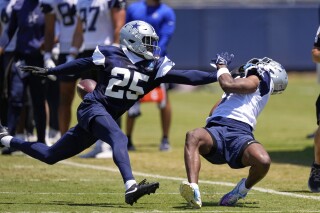Arch Manning, the standout quarterback for the Texas Longhorns, has recently acknowledged the profound impact of the team’s fan base on his performance and the overall success of Texas football. He referred to the fans as the “backbone of Texas football,” emphasizing that their unparalleled energy in Austin “forces the best out of you.” This sentiment underscores the symbiotic relationship between the team and its supporters, highlighting how fan engagement can elevate athletic performance.
The Role of Fan Support in Athletic Performance
The influence of a passionate fan base extends beyond mere attendance at games; it plays a critical role in shaping the psychological and physical performance of athletes. Research indicates that fan support can boost player morale, increase motivation, and even impact the outcomes of games. The phenomenon known as the “social facilitation effect” suggests that the presence of spectators enhances an individual’s performance on tasks they are already good at. In the context of sports, this means that athletes often perform better when cheered on by supportive fans.
Home-Field Advantage and the Texas Longhorns
The concept of home-field advantage is well-documented in sports psychology. Teams playing on their home turf, surrounded by their fans, often have a higher probability of winning. This advantage is attributed to several factors, including familiarity with the playing environment and the psychological boost from fan support. For the Texas Longhorns, playing at Darrell K Royal-Texas Memorial Stadium provides such an advantage. The stadium’s electrifying atmosphere, amplified by the fervent support of the fans, creates a challenging environment for visiting teams. Alabama’s Will Anderson once remarked that playing in Austin was “probably the loudest environment I’ve played in,” highlighting the intensity of the Longhorns’ home crowd.
Fan Engagement: A Deep-Rooted Tradition
The dedication of Texas Longhorns fans is deeply rooted in personal experiences, family traditions, and a shared sense of pride. Many fans develop their allegiance early in life, influenced by family members and community ties. This generational support fosters a strong community around Texas athletics, creating an environment where fans and players feel connected. Steven Ngati, a notable super fan, credits his mother’s involvement in Texas Exes for instilling a sense of pride and connection to the team. Such deep-rooted engagement not only enhances the game-day atmosphere but also contributes to the team’s identity and unity.
The Psychological Impact on Players
For players like Arch Manning, the unwavering support from fans serves as a powerful motivator. Knowing that thousands are cheering them on can boost confidence and drive athletes to perform at their peak. This psychological uplift is crucial, especially during high-pressure situations. The energy from the crowd can help players overcome fatigue, maintain focus, and push through challenging moments in a game.
Influence on Coaching and Team Dynamics
Fan engagement also extends its impact to coaching decisions and team dynamics. A supportive fan base can influence coaching strategies, player selections, and even management decisions. Coaches may feel more confident in making bold decisions, knowing they have the backing of loyal fans. This support can foster a positive team environment, where players feel valued and motivated to perform not just for themselves but for their supporters.
Beyond the Stadium: The Broader Impact of Fan Support
The influence of fan support transcends the confines of the stadium. Engaged fans contribute to the team’s financial stability through merchandise purchases, attendance, and media viewership. This financial backing enables the team to invest in better facilities, training, and talent acquisition, further enhancing performance. Moreover, a strong fan base can attract sponsorships and partnerships, elevating the team’s profile and resources.



